About half of all severe-to-profound autosomal recessive nonsyndromic hearing loss results from mutations in the GJB2 gene. However in most previous studies it was not possible to distinguish between congenital present at birth and non-congenital prelingual hearing loss.
Gjb2 C 235delc Variant Associated With Autosomal Recessive Nonsyndromic Hearing Loss And Auditory Neuropathy Spectrum Disorder
Genetic hearing impairment affects approximately 12000 live births.
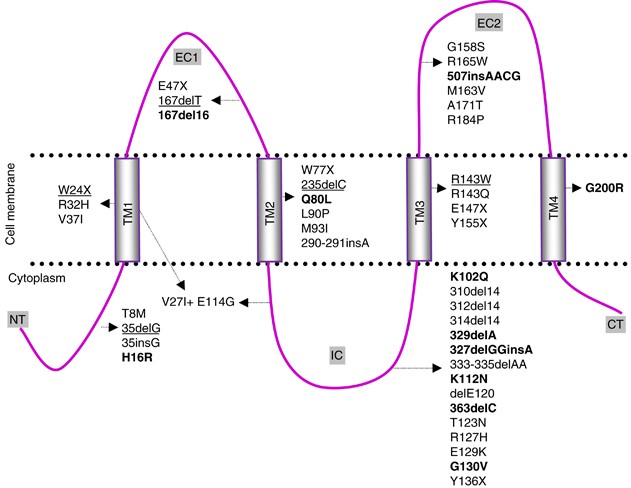
Gjb2 hearing loss. We performed cross-sectional analyses of GJB2 genotype and audiometric data from 1531. DFNB1 is inherited in an autosomal recessive manner. In the present study the frequency of GJB2 alleles in 20 newborns with bilateral severe-to-profound.
8-11 In addition some mutations including M34T and V37I seem to be associated with a milder audiologic phenotype than others. We are objective in our recommendation. We are objective in our recommendation.
Despite extraordinary genetic heterogeneity mutations in one gene GJB2 which encodes the connexin 26 protein and is involved in inner ear homeostasis are found in up to 50 of patients with autosomal recessive nonsyndromic hearing loss. Progression asymmetry and imaging abnormalities were present in 14 to 19 of individuals with GJB2-associated hearing loss. 1101213 Although there have been some.
Hearing loss due to mutations in GJB2 is present by birth but can vary in severity from moderate to profound. Ad Price is subjective. These cases are designated DFNB1.
The hearing loss caused by GJB2 mutations is usually congenital in onset moderate to profound in degree and non-progressive. Because of the high frequency of GJB2 mutations mutation analysis of this gene is widely available as a diagnostic test. Changes in any one of these genes can result in hearing loss.
These instructions come from genes. Because of the high frequency of GJB2 mutations mutation analysis of this gene is widely available as a diagnostic test. The GJB2 gene is one of the genes that contains the instructions for a protein called connexin 26.
The GJB2 gene provides instructions for making a protein called connexin 26 which is a member of the connexin protein family. In this study we assessed the association between genotype and degree of hearing loss in persons with HI and biallelic GJB2 mutations. Researchers have identified more than 100 GJB2 gene mutations that can cause nonsyndromic hearing loss which is loss of hearing that is not associated with other signs and symptoms.
When the GJB2 pathogenic variant. Mutations in this gene can cause two forms of nonsyndromic hearing loss. High frequency hearing loss correlated with mutations in the GJB2 gene.
Syndromic hearing loss hearing loss associated with other clinical findings makes up the remaining 30. Houseman et al 2001. GJB2 is the most common causative gene for hereditary hearing loss in many populations worldwide and most of the GJB2 sequence variations described to date were localized in the coding region The Connexin-deafness Homepage.
This protein plays an important role in the functioning of the cochlea. In each pregnancy the parents of a proband have a 25 chance of having a deaf child a 50 chance of having a hearing child who is a carrier and a 25 chance of having a hearing child who is not a carrier. The objective of this study was to study genotypephenotype correlations and to document 14 children with biallelic GJB2 mutations who passed newborn hearing.
The M34T pathogenic variant in the GJB2 gene has been reported extensively in association with autosomal recessive non-syndromic sensorineural hearing loss NSHL and is associated with a milder severity and later onset of hearing loss compared to other reported pathogenic variants in the GJB2 gene Wilcox et al 2000. Snoeckx et al 2005. Ad Price is subjective.
Of these the pV37I variant of GJB2. However it is now well recognized that GJB2 hearing loss ranges from mild to profound 1 with some cases demonstrating incomplete penetrance or delayed onset of hearing loss. Worldwide mutations in the gap junction beta 2 GJB2 gene encoding the connexin 26 Cx26 protein are responsible for approximately 30 of all cases of childhood SNHL.
Mutations in GJB2 account for the majority of recessive forms of prelingual hearing loss. GJB2 mutations are highly prevalent around the world. Pathogenic variants in the gap junction protein beta-2 GJB2 gene are the most common cause of hearing loss.
Mutations in one gene GJB2 coding for connexin 26 cause 10-20 of all genetic sensorineural hearing loss. The cochleas hybrid junction gaps which facilitate intercellular communication when one of the proteins is missing the hybrid junction gaps fail to work and the cochleas hair cells die off leaving the body incapable of translating sounds into nerve impulses. The multiple predominant mutations present in different populations attest to the importance of this gene for normal cochlear function and suggests an evolutionary heterozygote advantage.
 Genetic Causes Of Nonsyndromic Hearing Loss In Iran In Comparison With Other Populations Journal Of Human Genetics
Genetic Causes Of Nonsyndromic Hearing Loss In Iran In Comparison With Other Populations Journal Of Human Genetics
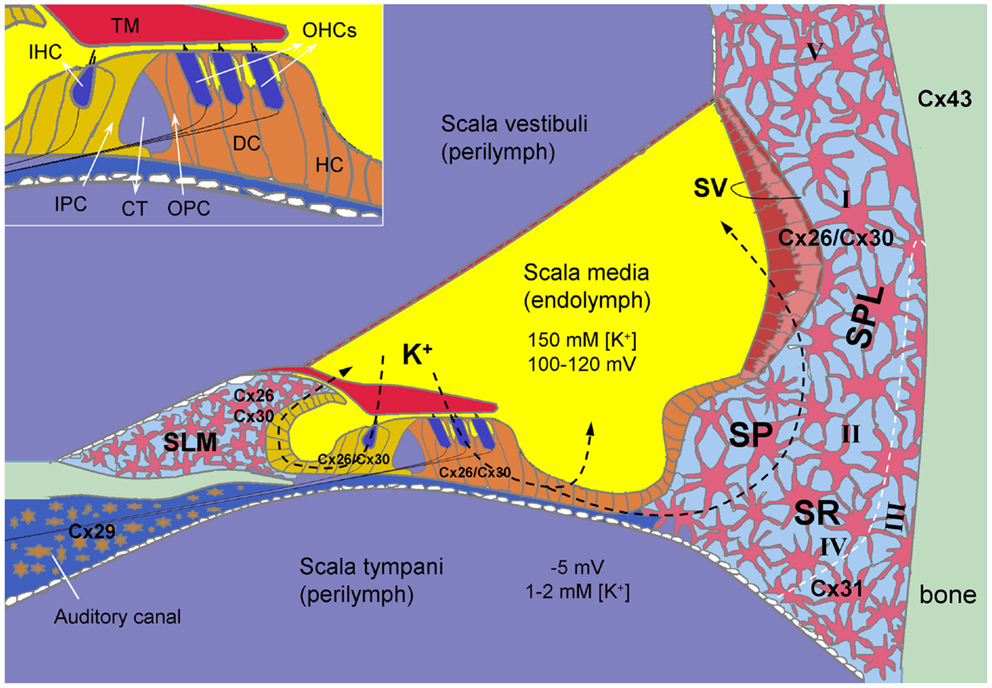 Frontiers Cellular And Deafness Mechanisms Underlying Connexin Mutation Induced Hearing Loss A Common Hereditary Deafness Cellular Neuroscience
Frontiers Cellular And Deafness Mechanisms Underlying Connexin Mutation Induced Hearing Loss A Common Hereditary Deafness Cellular Neuroscience
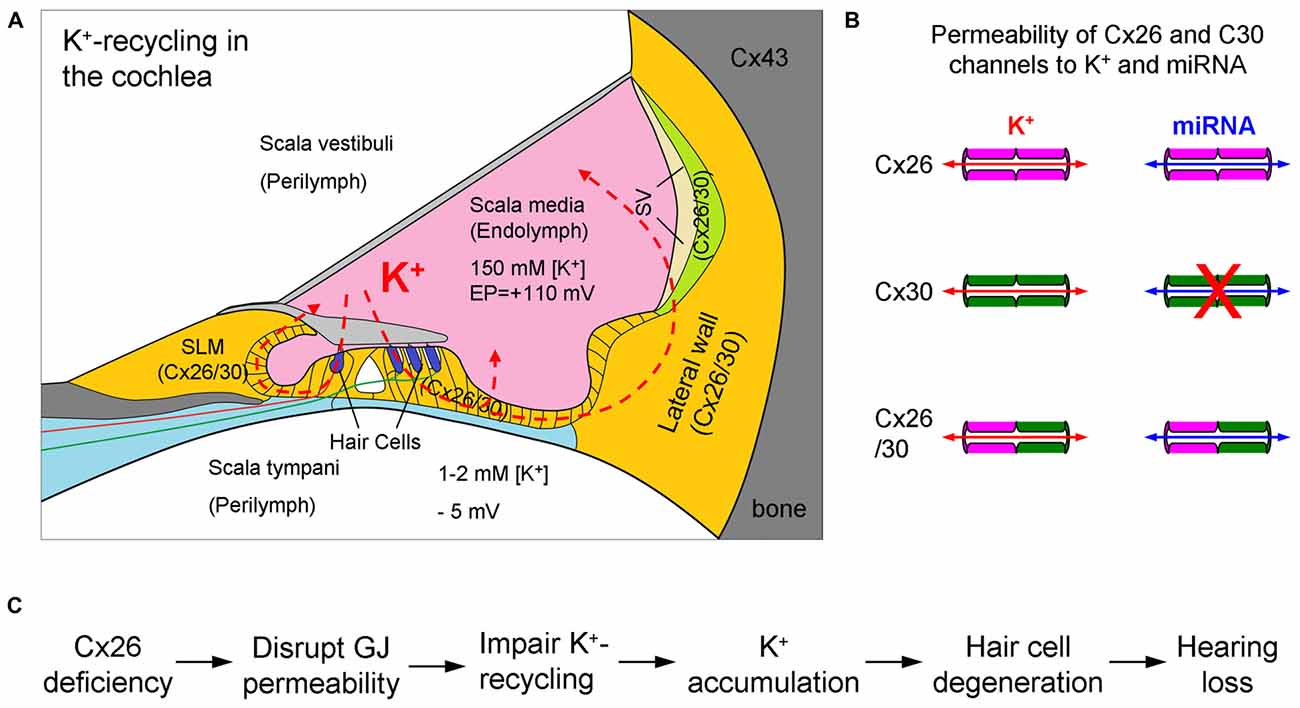 Frontiers Hypothesis Of K Recycling Defect Is Not A Primary Deafness Mechanism For Cx26 Gjb2 Deficiency Molecular Neuroscience
Frontiers Hypothesis Of K Recycling Defect Is Not A Primary Deafness Mechanism For Cx26 Gjb2 Deficiency Molecular Neuroscience
Https Juniperpublishers Com Gjo Pdf Gjo Ms Id 555662 Pdf
 Gjb2 An Overview Sciencedirect Topics
Gjb2 An Overview Sciencedirect Topics
 In Vitro Models Of Gjb2 Related Hearing Loss Recapitulate Ca2 Transients Via A Gap Junction Characteristic Of Developing Cochlea Sciencedirect
In Vitro Models Of Gjb2 Related Hearing Loss Recapitulate Ca2 Transients Via A Gap Junction Characteristic Of Developing Cochlea Sciencedirect
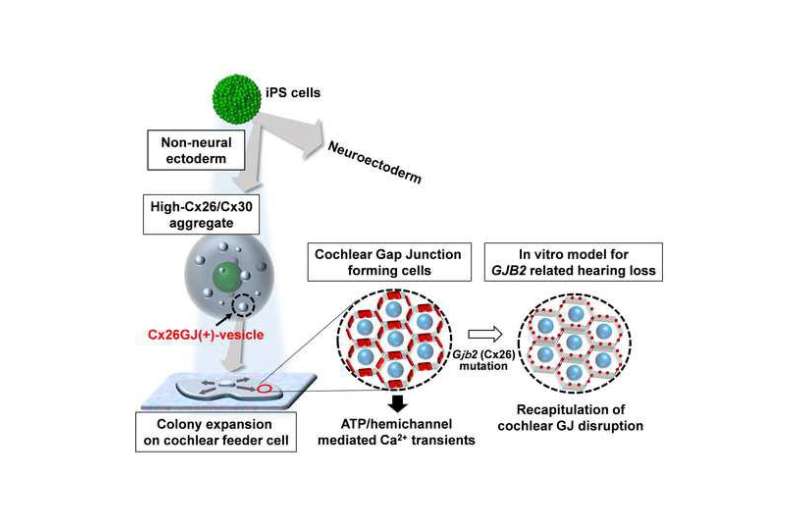 Stem Cells Provide Sound In Vitro Models For Deafness
Stem Cells Provide Sound In Vitro Models For Deafness
 Prevalence And Audiological Profiles Of Gjb2 Mutations In A Large Collective Of Hearing Impaired Patients Sciencedirect
Prevalence And Audiological Profiles Of Gjb2 Mutations In A Large Collective Of Hearing Impaired Patients Sciencedirect
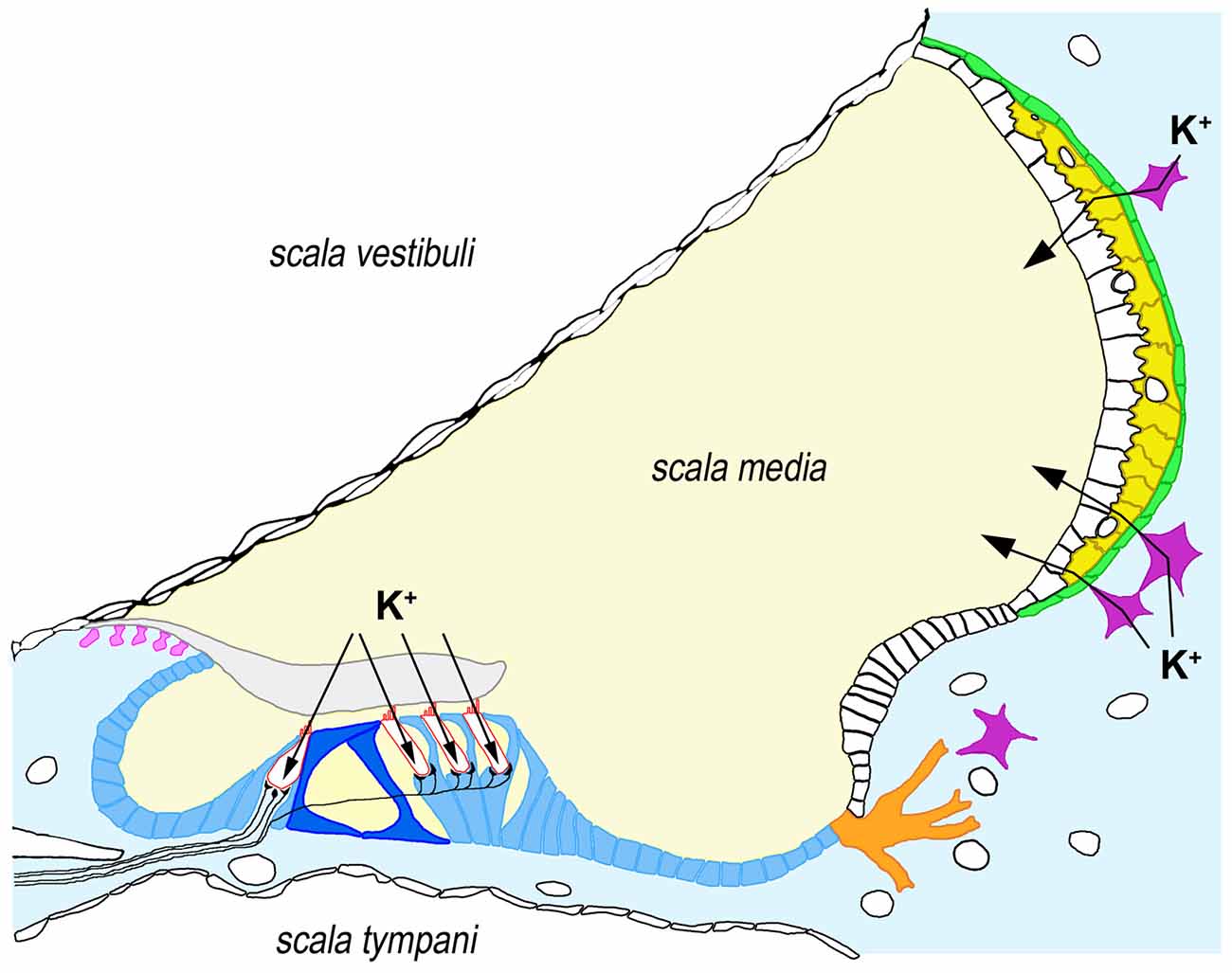 Frontiers Dfnb1 Non Syndromic Hearing Impairment Diversity Of Mutations And Associated Phenotypes Molecular Neuroscience
Frontiers Dfnb1 Non Syndromic Hearing Impairment Diversity Of Mutations And Associated Phenotypes Molecular Neuroscience
 Gjb2 Gene Hearing Loss Types Of Sensorineural Hearing Loss
Gjb2 Gene Hearing Loss Types Of Sensorineural Hearing Loss
No Evidence For Clinical Utility In Investigating The Connexin Genes Gjb2 Gjb6 And Gja1 In Non Syndromic Hearing Loss In Black Africans
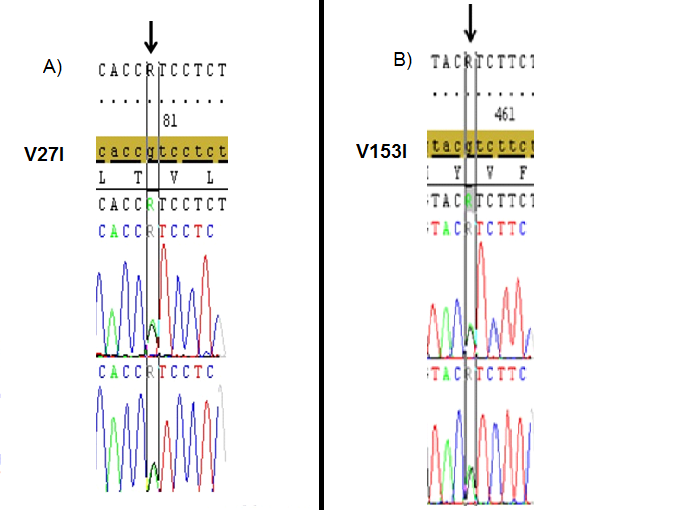 The Gjb2 Gene Mutation Profiles In Hearing Impaired Patients From Western Turkey Canakkale
The Gjb2 Gene Mutation Profiles In Hearing Impaired Patients From Western Turkey Canakkale

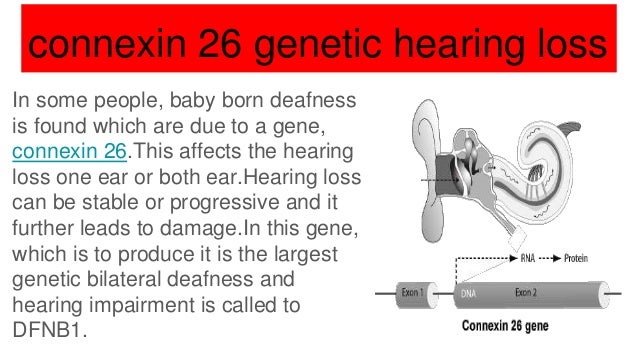

No comments:
Post a Comment
Note: Only a member of this blog may post a comment.